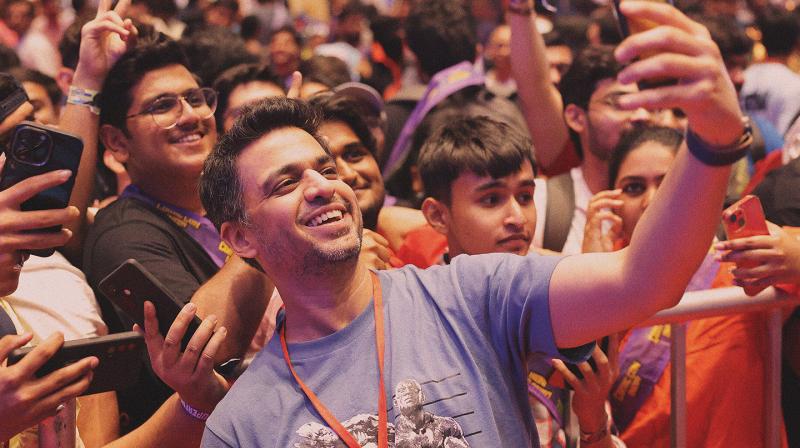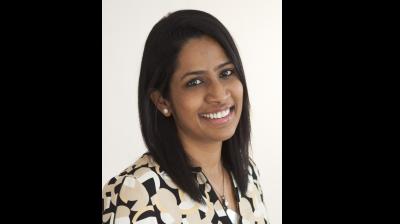While he's played several avatars, Rohan Joshi is most commonly known as a YouTuber. We caught up with Joshi to talk about his career and how it changed from television journalism to stand-up comedy, different social media requiring different content, and more...
Edited excerpts:
You dropped out of an engineering college, pursued journalism, and worked as a journalist for a few years. Why the switch to stand-up comedy?
The writing on the wall was pretty clear for television journalism by the time I was in it, which was around 2010 or 2011. I had only been in that profession for a few years and I think the larger idea was to be able to use my voice to talk about the stuff that mattered to me. More than stand-up comedy, just being able to do it as an individual instead of being a part of the larger network was just more appealing.
What is the present stand-up comedy scenario in India? Keeping in mind the Indian audience, what do you think are the biggest challenges in the Indian stand-up comedy space?
Stand-up comedy in India currently is in a pretty interesting place. For the last few years, we have been at the beginning of something. Now we are at a place where we are already seeing a multitude of different voices, life experiences, and personal stories coming out. I think we are getting a richer tapestry of voices than we had when things first started and that’s only going to exponentially increase. There are challenges that any mature industry or maturing industry has, which is that there are a lot more children coming in now, so sort of breaking through and being able to succeed in this is getting a little harder, which is to be expected.
You returned to the stage after three years with ‘Wake n Bake.’ Are we going to see any more new shows shortly?
I am currently writing and beginning to tour a new special, if specials are still a thing and people still consume comedy that way. The idea is to spend the second half of the year touring new shows for sure.
You were recently seen in the ‘The Whole Truth’ campaign. You were also a part of a Spyk campaign with The Great Khali last year. So, when it comes to brand endorsements - how do you pick brands?
When it comes to picking brands, one question I ask myself is - would I use this brand in real life? If that’s not necessarily the case or if it’s a product that’s very far removed from my usual daily use, I ask myself will I get to work with fun, cool people or will I have a fun couple of days on set, if I take on the assignment.
Now, you have done movies, stand-up specials and podcasts. What format is the way forward for you?
That’s a tough one and I don’t have an answer. This is because you could ask me this question at five-year intervals in my career and the answer would keep changing. When I started, I would have said stand-up and live on the stage is the way to go but later I would have been like YouTube is the way to go. Now that we have moved to sort of vertical video and Instagram Reels, I don’t even know if the format that is the way forward exists currently or if it will be a combination of these. I think a lot of this is just about being fleet-footed and keeping up with formats that seem to be dominating at least in terms of engagement and reach.
How do you look to distinguish and use different social media platforms? Do you have different content for Instagram versus YouTube?
One way to distinguish content across different forms of media is to also ask yourself how people consume that media. The way somebody consumes a Reel is fundamentally very different from the way somebody would consume a 15-20 minute YouTube video or a reaction video or one of those things. For example, with YouTube, especially the reaction videos that we do, a lot of times the most common thing that people say is that my partner and I or my friends and I, watch it with dinner or in my college dorm or whatever. Whereas, with Reels, it’s more like at some random point in this person’s day, while they are in a cab or wherever they might get 10 seconds of their time. That thought process is very different.
Trolling is something that’s gaining significance on social media and is a big issue. Comedians face it a lot. Does it bother you and how do you deal with it?
It’s a tough one. I think trolling has become a sort of natural by-product of a constantly online engaged world. If you are going to use water, there’s gonna be sewage and I think trolling is a form of sewage. It’s a part and parcel of the job. But that doesn’t necessarily mean that it’s okay or has to be tolerated. I think there is a difference between people having opinions and trolling straight up. Yes, it is a part of my day-to-day career, but it shouldn’t affect me and should be bulletproof. Once in a while, one or two comments will get through and you just have to sort of deal with it. To use an analogy: say if you are an electrician, you are probably used to getting a minor zap or two once in a while or a tiny electrocution while you are fixing something. But just because it is a part and parcel of a job it doesn’t make the little zap or a little electrocution pleasant and you just sort of process it and deal with it.
This story first appeared in the print issue of Manifest. Get the edition here.












